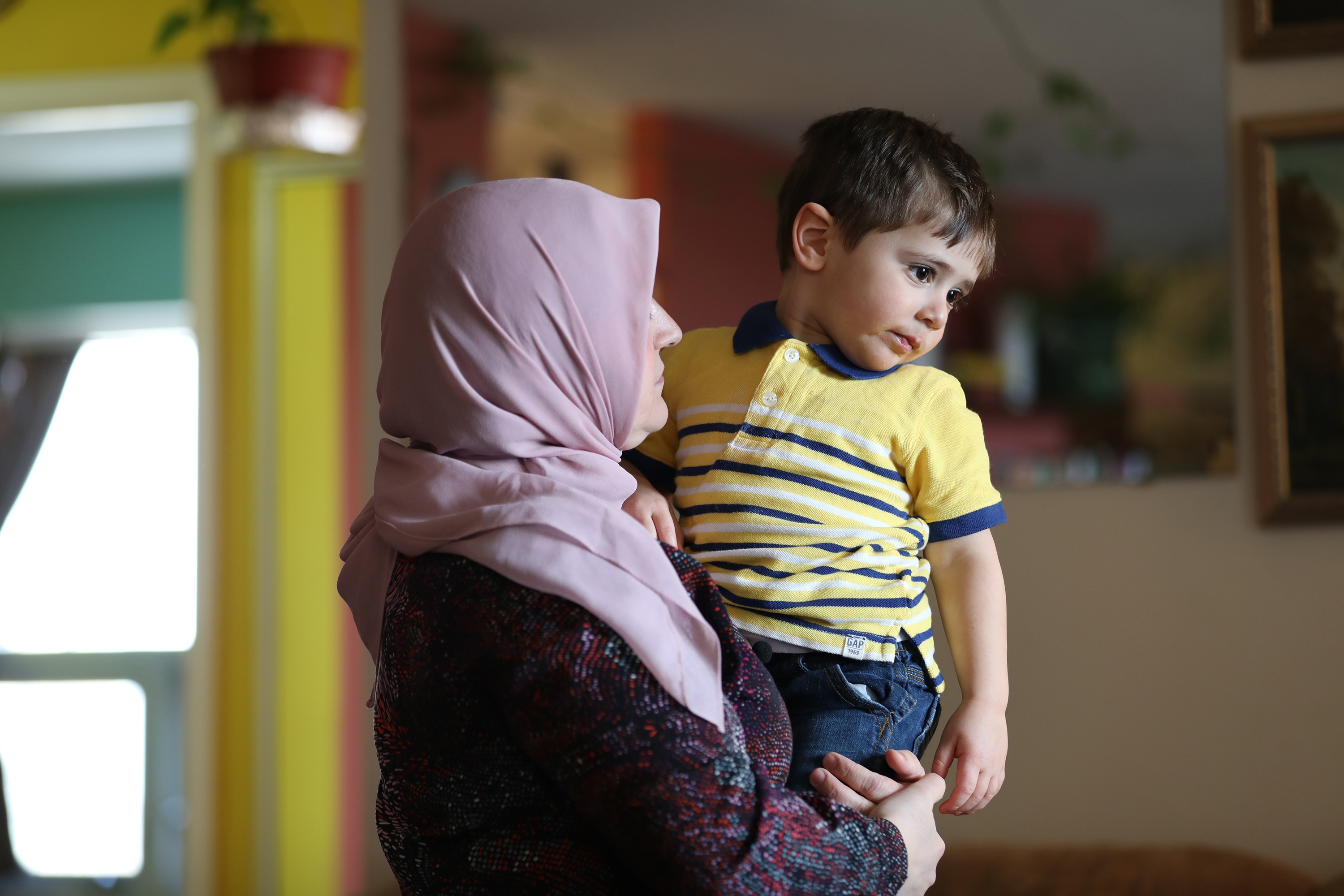May 1, 2018
In November 2014, Hassan Diab and his wife, Rania Tfaily, were in the mood to celebrate, despite the cloud of uncertainty hanging over their lives.
Their daughter, Jena, was turning two, Rania was seven months pregnant with their second child and they were all cautiously optimistic that an imminent legal decision could give them some semblance of normalcy as a young, growing family.
They hoped to recapture the atmosphere of Jena's first birthday party a year earlier, when they served platters of homemade food and cake to family and friends in the common room of their Ottawa apartment building.
But a Supreme Court decision derailed those plans. On Nov. 13, 2014, Canada’s highest court announced it would not review the controversial decision to extradite Diab to face terrorism charges in France for an attack he has always maintained he did not commit.
And so, on the eve of his daughter's birthday, the 60-year-old sociology professor was escorted in handcuffs onto an Air France flight to Paris. After landing in France in the early morning hours of Nov. 15, he was rushed to a fortress-like prison on the outskirts of Paris.
As Rania and Jena slept at home, French prison guards took Diab's fingerprints and led him to the small cell that would become his world.
"A new life, a new phase started at that exact moment," Diab said in an in-depth interview with CBC News.
He had been promised the opportunity to say goodbye to his family. To tell Rania that he loved her. To wish his daughter a happy birthday. To assure them that he would see them both soon. None of that happened.
"What more can you lose? If you lose these things, there's nothing left in life."
Jena's birthday was, in fact, the first of a series of family milestones Diab missed while France detained him for his alleged role in a 1980 synagogue bombing that killed four people.
Diab's extradition was the outcome of a battle that began in 2008, when the RCMP arrested him on a request from the French government. Eyewitness descriptions, secret intelligence and handwriting samples pointed to Diab as the man behind the bombing. France wanted him extradited to face an investigation.
Diab maintained his innocence — he hadn't even been in France the day of the bombing, he said. And there was little physical evidence that supported the French government's allegations. Multiple handwriting experts testified the handwriting evidence implicating Diab was flawed. Some of the samples used for comparison belonged to his ex-wife.
Legal and security experts gave evidence to the unreliability of unsourced intelligence and testified about France's problematic history of using evidence gathered through torture in terrorism trials.
But in November 2014, Diab lost his six-year legal battle against his own government. All appeals had been exhausted. The minister of justice signed on the dotted line, arguing the burden of proof to extradite had been met.
Diab was taken to Fleury-Mérogis prison, south of Paris, where he would be locked up for 38 months before French anti-terrorism judges ultimately declared in early 2018 that there was no case against him.
Now back in Canada, Diab is trying to resume a normal family life, but he struggles to accept the role the Canadian judiciary played in his incarceration. He missed his daughter's birthday four years running. He missed the birth of his son.
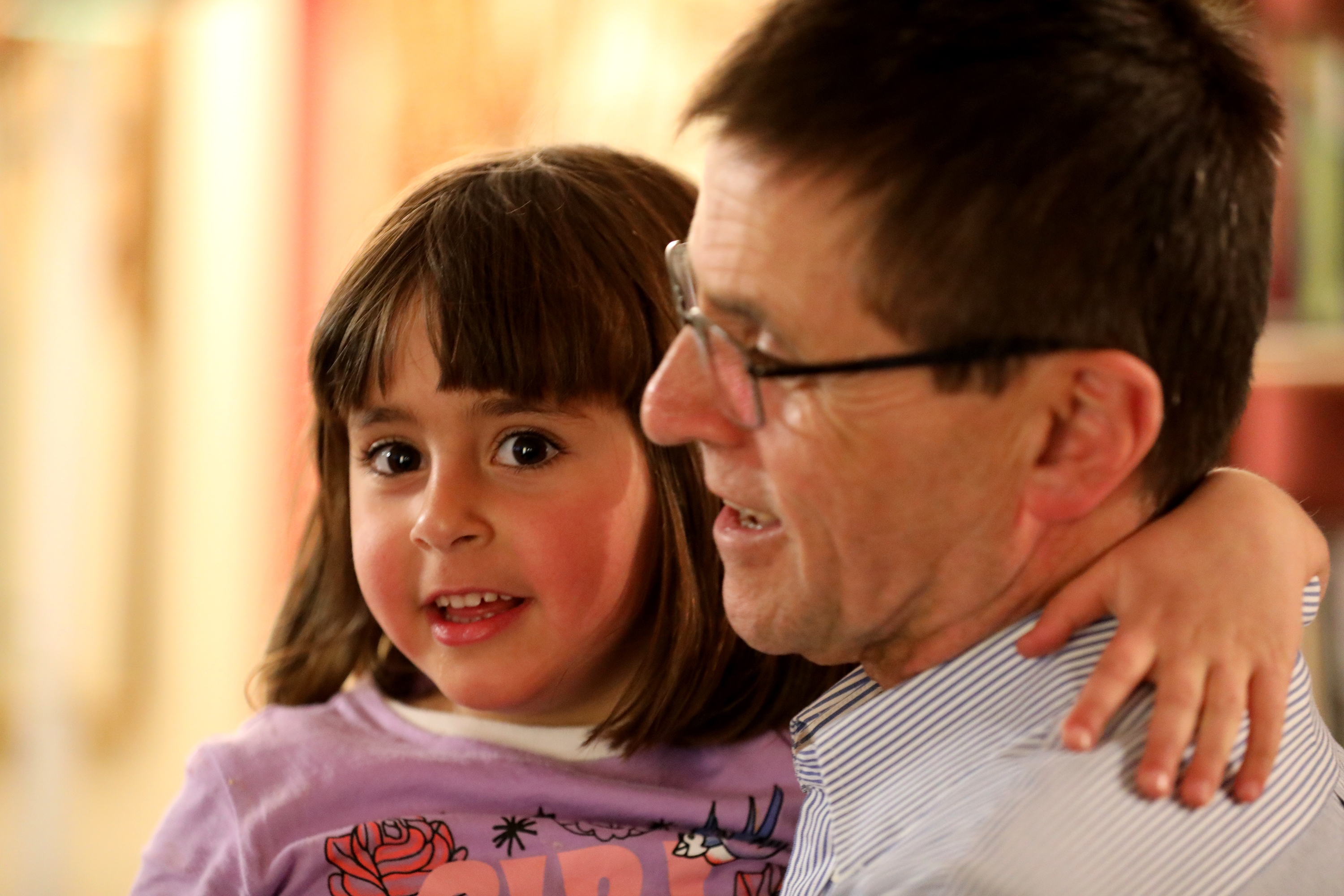
Even before his extradition, Diab's bail conditions were so strict that he was denied permission to attend his brother's funeral. And Diab's father died a few months before he was released, never knowing his son would be free.
"What more can you lose?" said Diab, looking back at the last decade. "If you lose these things, there's nothing left in life."
II.
Diab was born in Lebanon, and at the time of the Paris bombing, he was actually studying in Beirut. He eventually moved to the United States and completed a PhD in sociology at Syracuse University in New York state. In 2007, Diab moved to Ontario and began teaching classes at the University of Ottawa and nearby Carleton University.
One day in 2007, as Diab wrapped up his classes at Carleton, a French journalist approached him for comment. The reporter had flown from Paris, where he had learned that the French government was investigating Diab as the man who had carried out a synagogue attack three decades earlier.
The bomb that detonated outside the synagogue on Rue Copernic on Oct. 3, 1980, had been packed into the saddlebag of a motorbike parked on the sidewalk. The explosion killed four people and injured 40 and was the first attack on a Jewish target in France since the end of the Second World War.
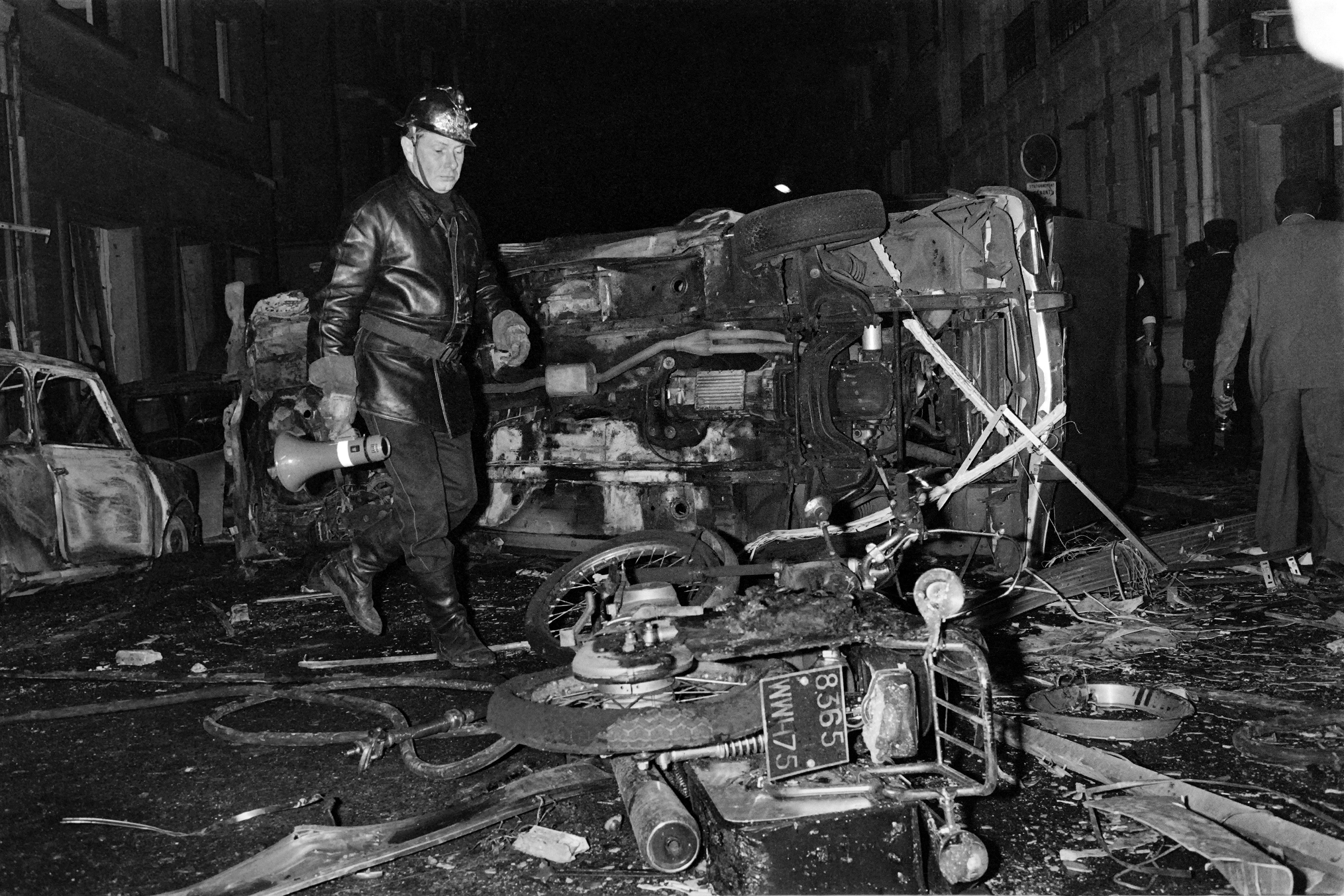
The bombing seemed to mark the emergence of a new type of violence in the country — international terrorism, perpetrated specifically by groups based in the Middle East. It has left a lasting mark on the French psyche.
"The events of that day have become infamous in the minds of the people of France," said Justice Robert Maranger in the written decision for Diab's extradition. "It is a nation that clearly wants closure. The Jewish community takes particular interest in seeing that the perpetrators of this heinous act are brought to justice."
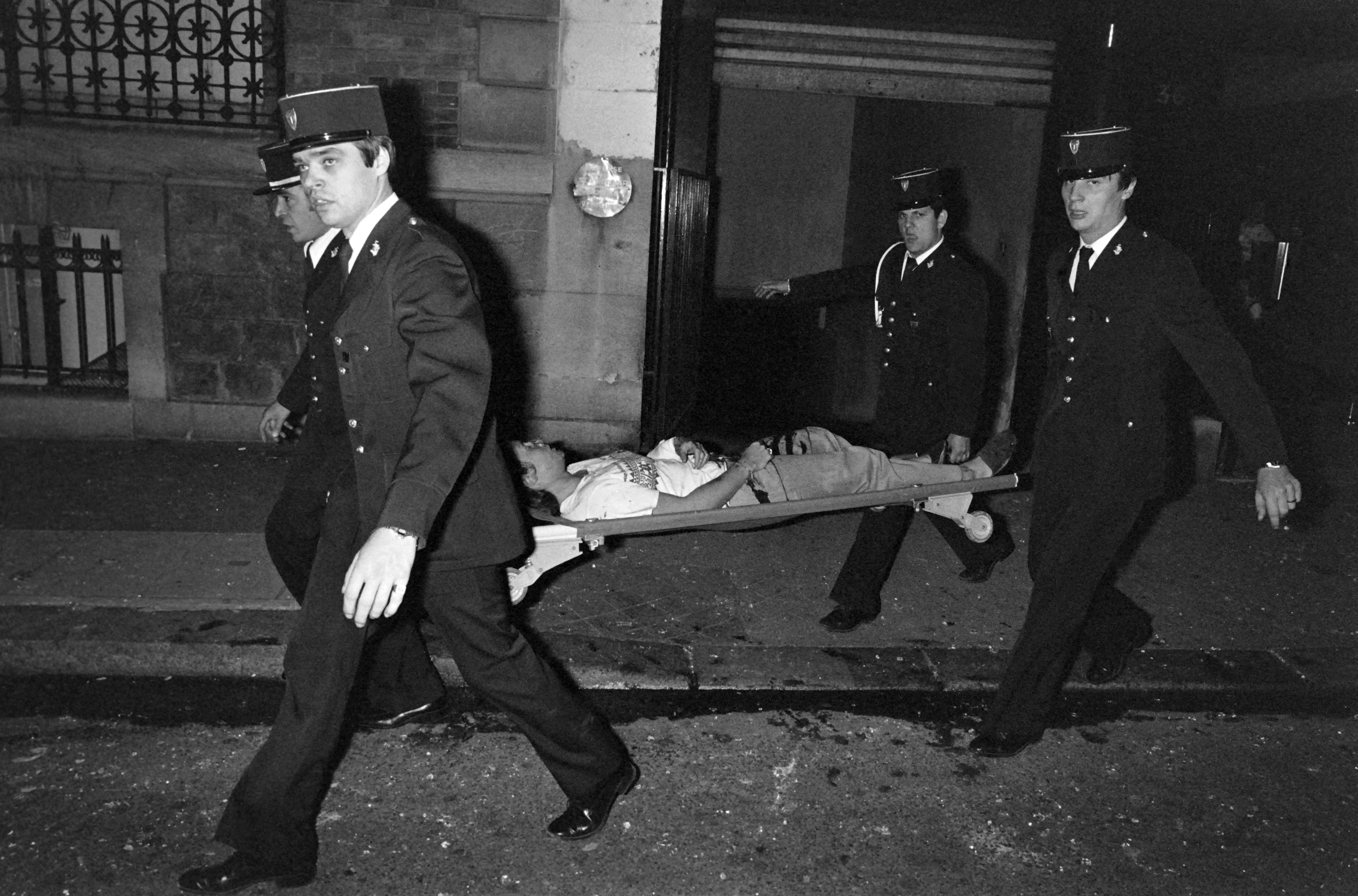
In the 1980s, France became a focal point for terrorism by outside state actors. In 1982, gunmen opened fire in the Jewish quarter of the city, killing six and wounding 22. In 1983, simultaneous bombings by an Arab group targeted trains running between Marseille and Paris, killing five and injuring dozens. Throughout 1985 and 1986, a series of attacks by a pro-Iranian group killed a total of 13 people and injured over 300.
French authorities struggled — as they do today — to prevent an increasing amount of attacks on home soil. Police and the judiciary were given special powers to thwart violence. The public fear of terrorism allowed the country to rapidly develop its capacity to fight it.
In particular, France strengthened the ability of the criminal justice system to pre-emptively investigate and detain people it deemed to be threats. As a result, a person accused of a terrorism-related crime in France can be held in pretrial detention for up to four years and eight months.
It took nearly 30 years for the French government to name Diab as the prime suspect in the synagogue bombing. The country has never publicly investigated another suspect for the crime.
France started the process to seek Diab's extradition in 2008. He lost his teaching jobs at the universities, and his bail conditions were so restrictive that he couldn't even take a job as a janitor. During those years, Diab was prevented from going anywhere alone. He was forced to wear an ankle bracelet that cost him nearly $2,000 a month (or $115,000 over six years).
He couldn't take his daughter to the park. If there was a medical emergency, he wasn't allowed to take her to the hospital.
His lawyer, Donald Bayne, perhaps best known for defending Senator Mike Duffy, worked on Diab's case pro bono for nine years. Bayne estimates he has given Diab nearly $1 million worth in legal services for free.
Even so, in late 2014, Diab was extradited and found himself in Europe's largest prison, among some of its most notorious criminals.
III.
Diab was put in a cell on the fourth floor of the Fleury-Mérogis prison, in a protected ward for rapists and pedophiles as well as incarcerated ex-police officers and prison guards — criminals who couldn't be placed in the general population for fear they would be harmed by other inmates.
Diab arrived with just the clothes on his back. He didn't speak any French, and many of the guards refused to talk to him in English.
In the first few weeks of his confinement, all that Diab could think about was his pregnant wife. During the day, he would scrawl the name of his as-yet unborn son, Jad, on the prison walls. At night, he would dream of Rania.
"It was extremely, extremely tough and difficult," Diab said. "Especially when you dream every night, what's going to happen? Rania is alone."
Rania was, indeed, alone — or, at least, without her husband — on an exceptionally cold Ottawa day in January 2015 when she went into labour and delivered their son.
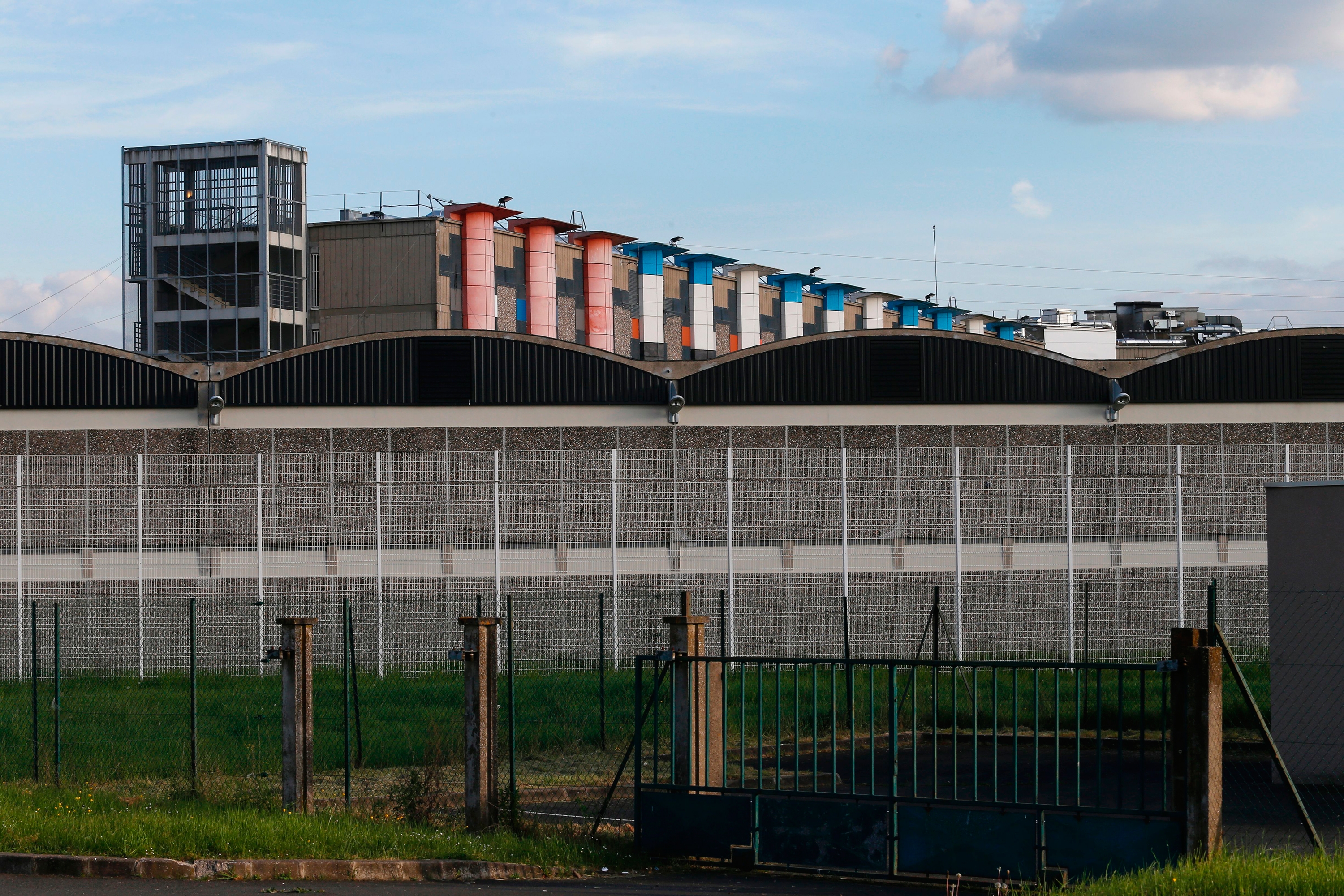
In those early months, Diab lived in denial that he could possibly face nearly five years in a cell. But outside the prison walls, France's security crisis was exploding once again as attacks by ISIS-linked cells plagued the country.
In January 2015, just weeks after Diab arrived in France, three gunmen attacked the Paris newsroom of the satirical newspaper Charlie Hebdo, killing 12. It later emerged that two of the assailants had been radicalized in the very prison where Diab was being held. Less than a year later, one of the men who had helped carry out the November 2015 attacks on the Bataclan concert hall and other Paris venues — which killed 130 people — ended up in a cell just a few dozen metres from Diab's.
Diab was sleeping under the same roof as some of the convicted terrorists who had revived a French political culture hungry for prosecutions in cases just like Diab's.
"I had the chance to talk to some of them — they were totally ignorant people," said Diab, who said he met a variety of radicalized men while traveling on the prison bus. "They wanted to do something not just crazy, something horrible. In the name of ideological principles."
That he, a soft-spoken sociology professor with no criminal history, could be lumped in with violent criminals was difficult for Diab to comprehend. Even the other inmates considered his imprisonment bizarre.
"They would say, 'You are not the same person [as the Paris attackers]. You are totally different.'"
"Physically, I was afraid sometimes. Especially when they raided my cell."
Diab taught himself to live like a prisoner. He learned how to survive amid hardened criminals by developing alliances to protect himself against inmates he described as "vicious."
"You don't know who is who," said Diab. "You have tons of snitches. You have to learn how to cover yourself. How to protect yourself."
He said he was threatened "many times, and almost attacked," but that "protection from other inmates who were also strong prevented the attacks." Diab used a technique from his sociology training called "participant observation" to watch the prisoners around him. He noticed a group of young men — some white, some of North African origin — who appeared to be leaders among the prison population. Diab realized that if he showed them some respect, he could befriend them.
"You had to use diplomacy with some connections with strong guys, so they can protect you if something happened."
But the threats came from all sides. Often, it was from the prison guards, who would move inmates to cells known to be colder or wet. "Abuse by proxy," Diab called it.
"Physically, I was afraid sometimes," Diab said. "Especially when they raided my cell. They didn't tell me why. The SWAT team came to toss me out of my cell."
The raids would last for hours, Diab remembered. "They were speaking French, screaming at me, shoving me and pushing me for no reason. That was a scary moment. I didn't know what was going on."
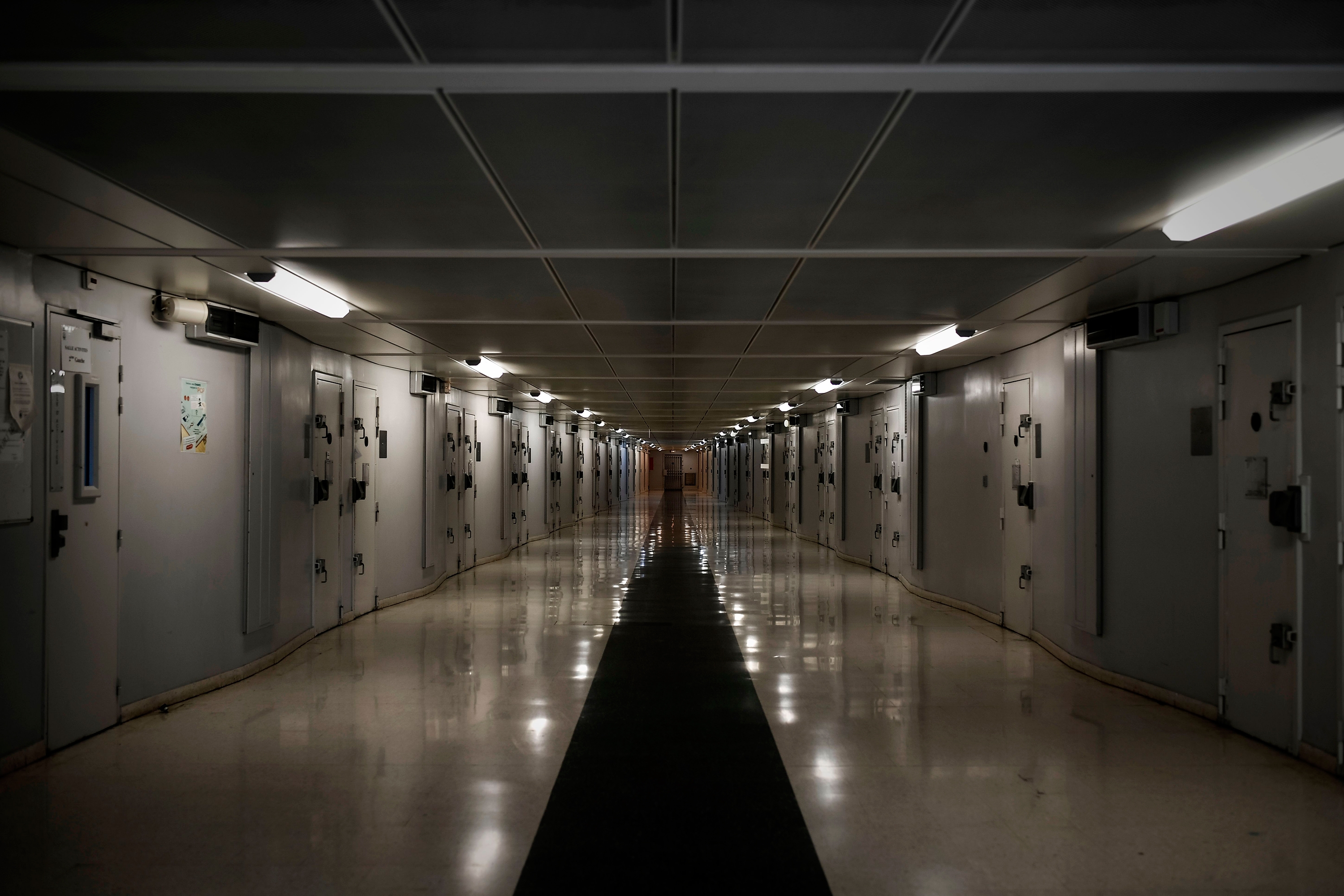
Diab was kept alone in his cell for up to 22 hours per day. Once a day, he was allowed into a larger yard outside that his guards called a "promenade."
"Four steps by eight steps, that was the yard," said Diab. "You would walk eight steps and hit the wall. We were just in that yard, 10 people … so you have about one square, maybe two square metres, per person."
As the years wore on, investigative judges in France ruled eight times that there wasn't enough evidence to continue to hold Diab, and that he should be released on bail. Each time, the French government would appeal the judge's decision and get the bail revoked.
Diab worked hard to maintain his sanity, but it was increasingly difficult.
"I was coming close to the third year [in prison] … and then I started losing it."
"It was the sixth time they vetoed my release when I felt like this was too much," said Diab. "I was coming close to the third year [in prison] and I was hoping things will … be more rational. And then I started losing it."
In his semi-delirium, he began inventing long, detailed stories as to why he was being held. He would write them out on the walls of the "promenade" for other inmates to read.
"It was mocking the whole system," said Diab of his writings. "Maybe I did something I didn't know. Maybe, I don't remember I snitched on Napoleon Bonaparte, and I helped the British to arrest him, but I didn't realize it!"
He continued to grapple with what he was even doing in Fleury-Mérogis prison — "this surrealism thing," as he called it.
"I thought, maybe Salvador Dali one day will come and explain to me what was going on. You are in a surrealistic place. Surrealism requires surrealism."
He clung to familiar comforts. He had English books that he would read voraciously and pile beside his bed. Prison doctors gave him sedatives, but he never took them. On days when he was allowed into a second, slightly larger yard, he picked dandelions. Other inmates helped smuggle them out for him, sometimes teasing him for not wanting something of greater value, such as drugs or a cellphone.
Diab just wanted flowers. He would place them in a glass of water beside his bed. As they wilted and died, he ate them.
IV.
On Jan. 12, 2018, French investigative judges dropped the charges against Diab. His case never went to trial. He was being released.
In response to the news, celebrations erupted in the Fleury-Mérogis ward where Diab had been held for 1,156 days.
"I told someone, 'I am out!' I spread the news, banging on the door. The whole floor was screaming, 'He is liberated! He is liberated!' The other inmates were so happy when I left," said Diab.
He said that a lot of inmates came and went in the time he was there, but that his release "was the first time that people were so joyful, because they said, 'We just don't know what you're doing here.'"
Canadian consular officials travelled with Diab from France to Canada. He flew home on a temporary passport via Iceland in order to avoid U.S. airspace, because he had been placed on a no-fly list in the U.S.
Despite his elation, Diab soon realized the cost of what he had gone through. Not only had he missed important family moments, but his relations had burned through their savings and relied on a team of volunteers to help pay his legal bills in France and Canada.
He acknowledges the past decade has been traumatic, and that he hasn't quite begun to deal with the emotional and physical damage the extradition and incarceration caused.
"The dreams, the nightmares, from time to time, they come," said Diab.
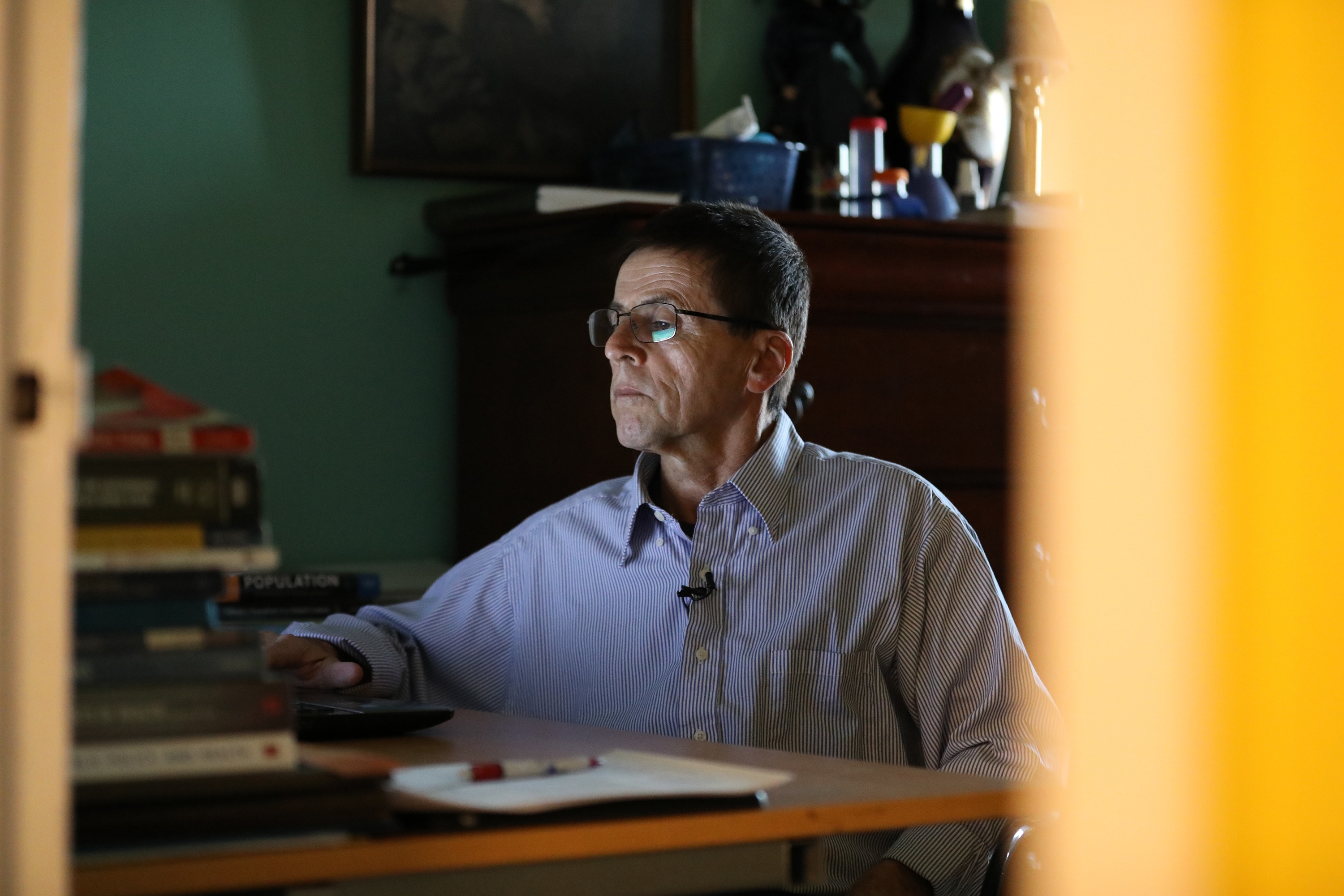
He said his bones still ache after sleeping on the metal frame bed in his cell. He has also had trouble with his teeth, as dental care was essentially non-existent in prison. But Diab has promised himself that he won't complain about the pain out loud, for the sake of the children.
Minimizing his children's suffering is a priority. For weeks after he came home, Diab would wait for them to be asleep before stepping out to run errands, like picking up milk. That's because doing so during the day would send his children into a panic, afraid their father wouldn't come back home.
Overall, Diab seems at peace and not consumed by rage. The decision to not allow himself to become angry was the result of an internal debate he had many times lying awake, alone in his cell.
"You know, if anger solves anything, I would be super angry," Diab said. "If I get angry, really, what will happen? I think I will kill myself, just like that. What can you do? What else? There's nothing else. Do you commit suicide? No. Because you have these wonderful guys and the family and the kids and do you solve anything? And the answer was constantly no."
Diab maintained he has no interest in suing Canada's Department of Justice. He said he doesn't want a dollar from "those people."
"A day with the kids is worth more than all the money they could give me," he said.
If there was ever a settlement, he would use the money to pay back the supporters across the country who helped pay his legal bills. The ones who wrote him letters urging him to maintain hope throughout his time in prison.
To this day, they refuse to tell Diab how much money they raised to support Rania and the children.
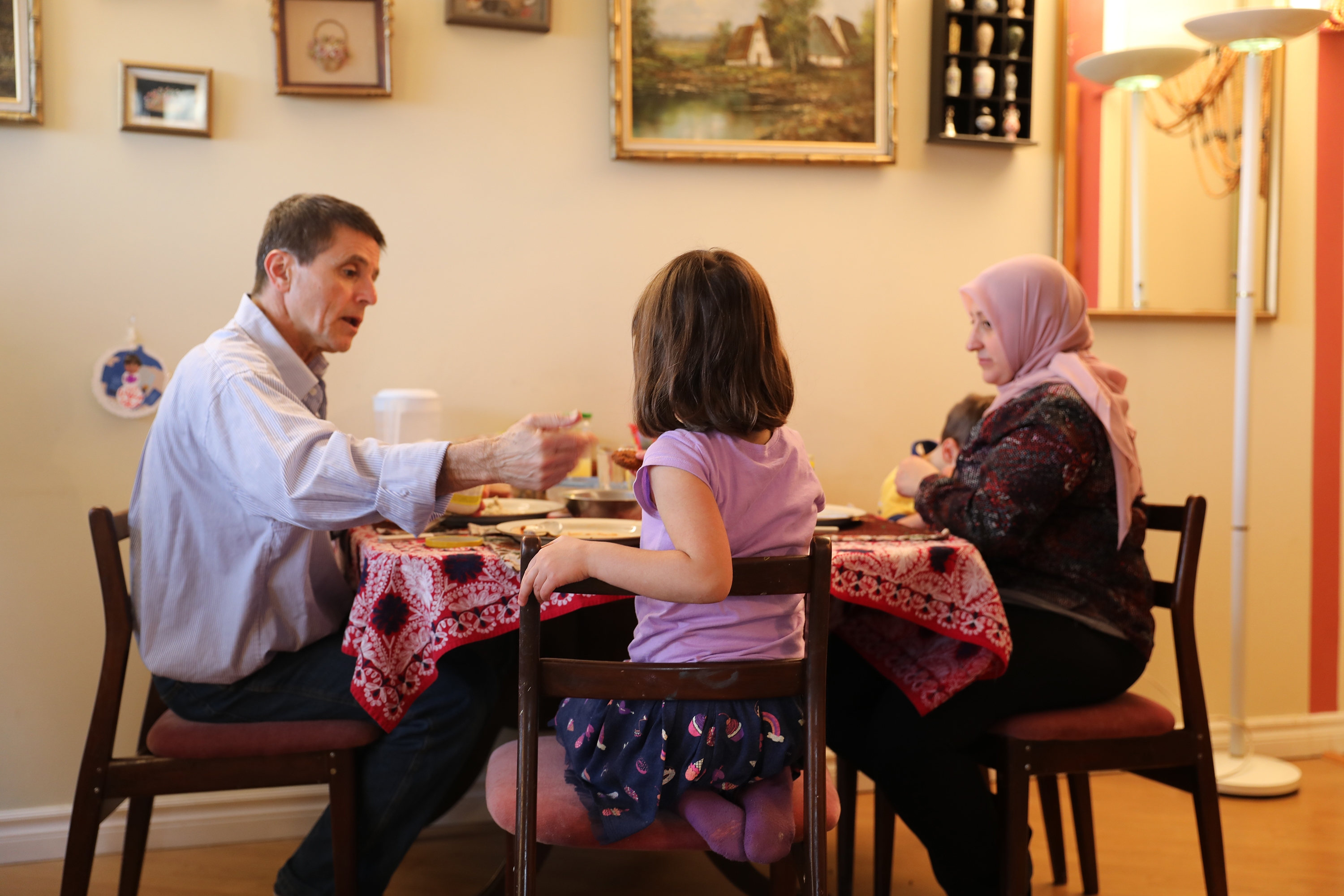
Diab has been trying to develop a new daily routine. He wakes up early each day to prepare breakfast in the two-bedroom apartment where his family lives. But even now, France intrudes.
Like many parents, Diab often transforms his spoon into an airplane to get Jena to eat. But one morning, as he piloted the imaginary plane toward his daughter's mouth, her brother Jad asked a worried question.
"Is the plane going to take Jena to France?"
To his children, France isn't a place to visit. It's a prison.
"It takes time for them to understand this is a country, not a jail," said Diab. "But it's scary. So you have to take your time to explain to them."
Since his return to Canada in January, Diab has walked a fine line between settling in with his family and remaining aware that his battle with France isn't over. The French government would like to see Diab extradited again or tried in absentia. On July 6, Diab will learn if he is finally a free man.
He is hopeful that he might be able to work again — to contribute financially to his family after being prevented from doing so for a decade.
He turns to his children to maintain hope, as he did when he was still in prison.
Hope "makes you feel that you are stronger than even what your physical strength can offer you," he said. "It's magic, I would say."
